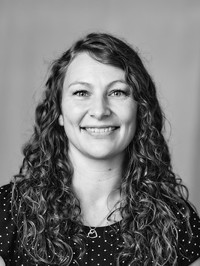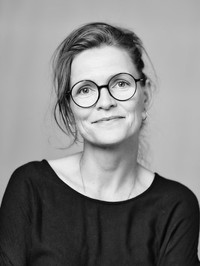Automating Waste Separation
A pilot project at Esbjerg and Grindsted Hospital – University Hospital of Southern Denmark will investigate and assess possible automation solutions to support and ease waste separation at the hospital.
Purpose
The project is a pilot project at Esbjerg and Grindsted Hospital – University Hospital of Southern Denmark which aims to investigate and assess possible solutions for automating the workflows for waste separation in order to meet the national requirements for increased waste separation.
The goal is to ensure correct waste separation with the least possible burden on the hospital staff and their work environment.
The project will investigate challenges and opportunities and use these for designing, qualifying and testing different scenarios for automated waste separation. There is a particular focus on the waste fraction containing “all plastic, food and drink cartons”. The project will be carried out at Esbjerg Hospital.
Based on the tests and analyses, the potential of the scenarios will be compared and assessed according to parameters such as economy, time and resources, work environment, and climate- and other environmental impact. The comparisons and recommendations will take into consideration the optimal solutions locally at Esbjerg Hospital but it will also consider the potential of scaling the solution to other hospitals in the Region of Southern Denmark.
The project will contribute to the hospitals’ process towards a circular economy, reduced climate impact and the Regional Council’s goal of increasing the degree of recycling to at least 45% by 2030.
Background
The hospitals generate an increasing amount of waste due to e.g. increased efficiency. However, the hospital buildings have not been designed with the capacity to meet the increased need for managing, separating and storing the waste on-site. The Danish Waste Act requires separation of waste in a number of fractions at the source, and these separation processes will take up manpower and time at the hospitals, which are already experiencing an increasing shortage of staff. In combination, the lack of space and increased waste workflows present a big challenge for the hospitals.
The hospitals have to navigate between, and consider, a number of aspects: adherence to the environmental legislation (including the Waste Act), ensuring that hospital staff use their time on patient related tasks, limited space for waste storage, and meeting requirements of fire safety. Furthermore, there is an obligation to support a high level of recycling of waste including plastic, in order to reduce the climate impact of hospital operations.
The plastic waste fraction is particularly complex in a hospital perspective. It is challenging even for trained staff to know the difference between the waste types e.g. soft and hard plastic. There will therefore be a margin of error for waste separation, which has a negative impact on the recycling potential of the waste, and on the price of waste management.
It is therefore important to investigate the possibilities for mixed waste fractions for hard and soft plastic and also to investigate disposal methods e.g. via suction and automated waste separation at the Technical Department in Esbjerg.
Expected Impact
Automation and mixed waste fractions will support Esbjerg Hospital to meet the requirements of the Waste Act with least possible strain on the staff in terms of time and working environment and at the same time with a minimum use of space for storing multiple waste fractions.
Partnership
- Esbjerg and Grindsted Hospital – University of Southern Denmark is the Project Owner
- The Health Innovation Centre of Southern Denmark is in charge of day-to-day Project Management on behalf of Esbjerg Hospital and is responsible for user involvement and development of an implementation plan and change management plan.
Time
The project period runs from 2023 to 2024.
Feel free to contact

Caroline Strudwick
Specialkonsulent, udviklingskoordinator
Brugercentreret Innovation
40 24 75 87 Caroline.Strudwick@rsyd.dk Caroline Strudwick på LinkedIn

Stine Poulsgaard
Innovationskonsulent, designer MA
Brugercentreret Innovation
29 12 08 05 Stine.Poulsgaard@rsyd.dk
